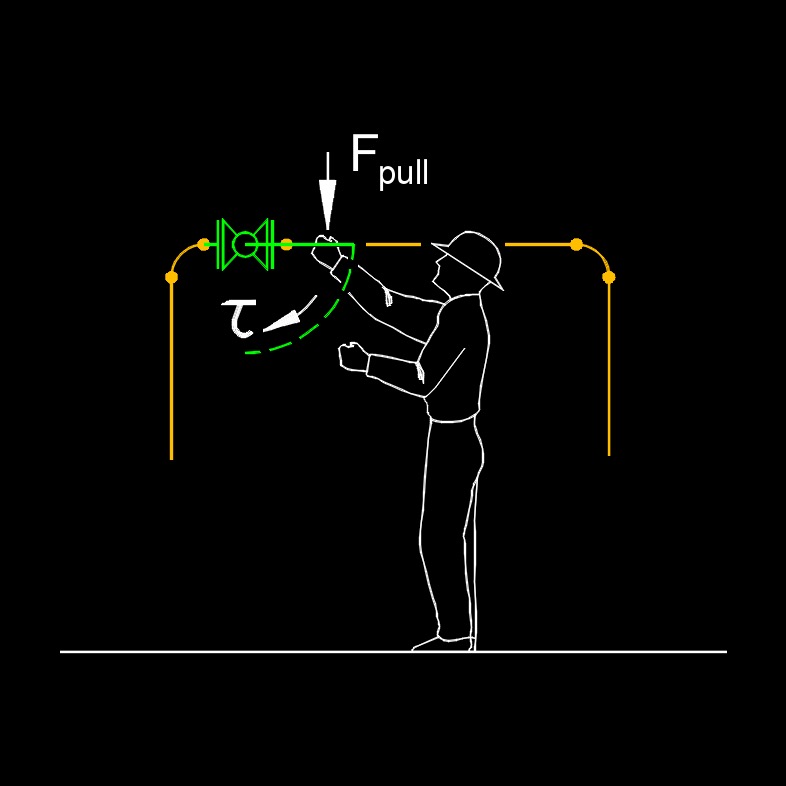Torque for Perpendicular Force
Torque for Perpendicular Force Formula |
||
|
\( \tau \;=\; r \cdot F \) (Torque for Perpendicular Force) \( r \;=\; \dfrac{ \tau }{ F } \) \( F \;=\; \dfrac{ \tau }{ r } \) |
||
| Symbol | English | Metric |
| \( \tau \) (Greek symbol tau) = Torque | \(lb-ft\) | \(N-m\) |
| \( r \) = Radius | \(in\) | \(mm\) |
| \( F \) = Force | \(lbf\) | \(N\) |
 Torque for a perpendicular force, abbreviated as \(\tau\) (Greek symbol tau), is the rotational effect produced when a force acts at a right angle (90 degrees) to a lever arm or the distance from the axis of rotation. It measures how effectively a force can cause an object to rotate around a pivot point. When the force is applied perpendicularly, the torque generated is at its maximum because the entire magnitude of the force contributes to rotation.
Torque for a perpendicular force, abbreviated as \(\tau\) (Greek symbol tau), is the rotational effect produced when a force acts at a right angle (90 degrees) to a lever arm or the distance from the axis of rotation. It measures how effectively a force can cause an object to rotate around a pivot point. When the force is applied perpendicularly, the torque generated is at its maximum because the entire magnitude of the force contributes to rotation.

